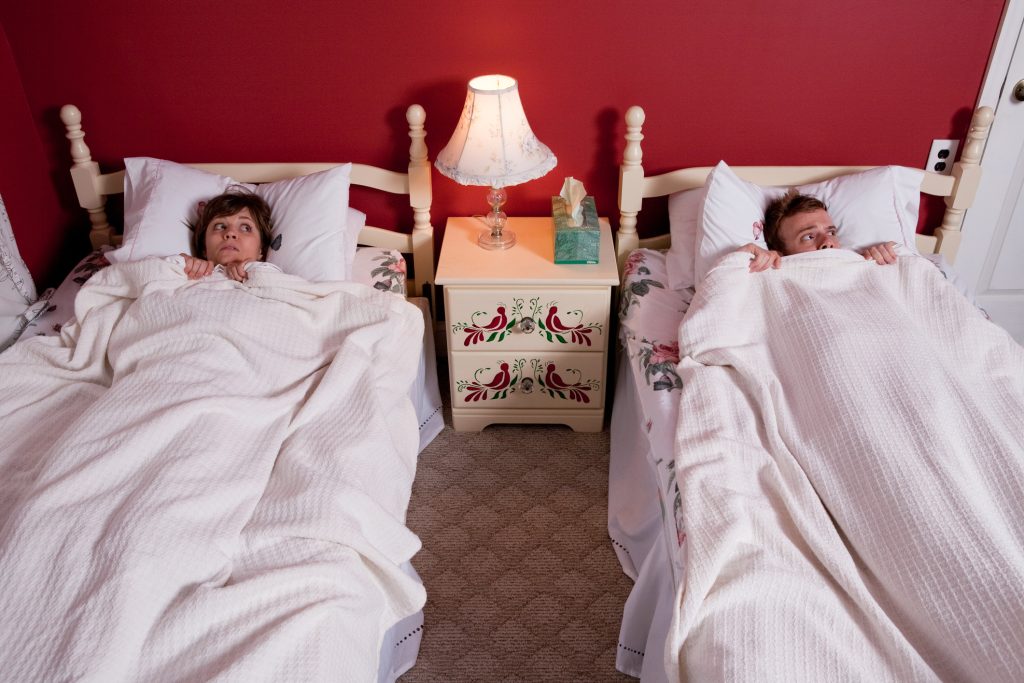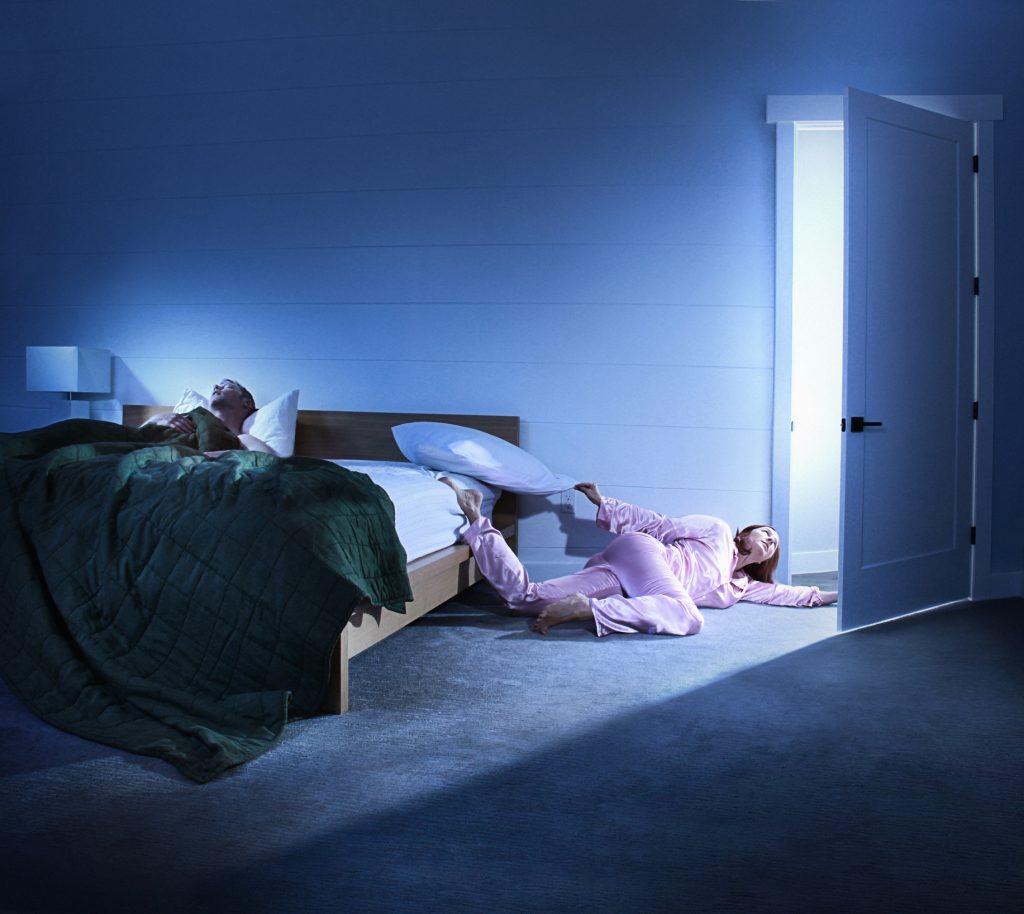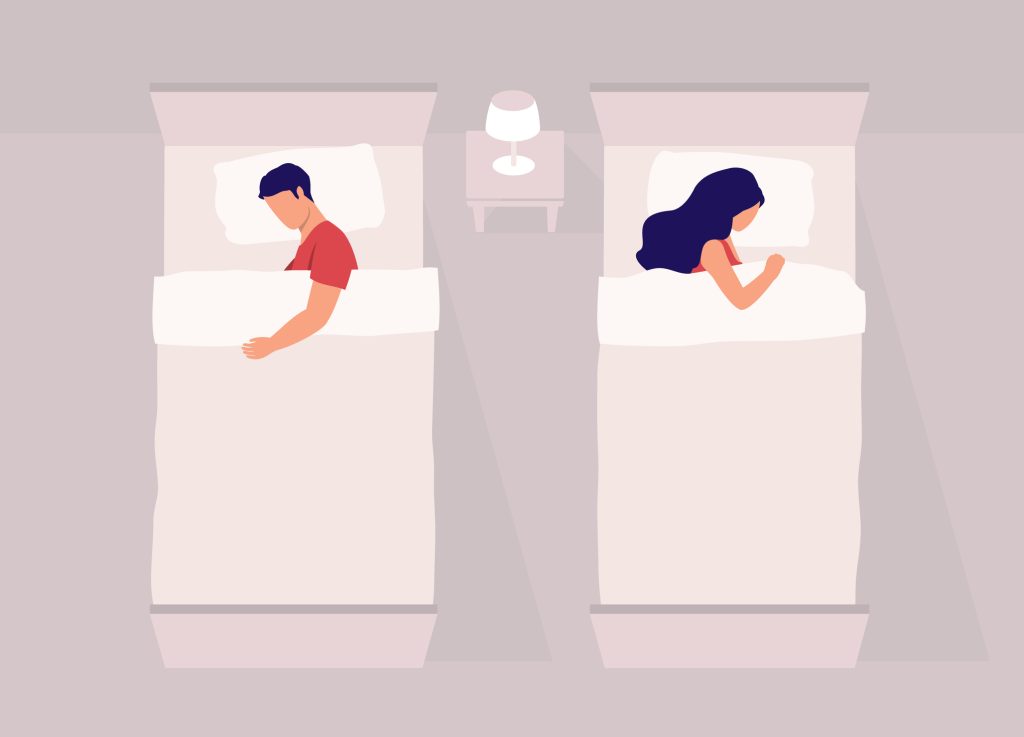Is it good or not that couples sleep in separate beds?
If your love snore, or if you prefer the cold and he heat, stop sleeping together could save your relationship.

Living as a couple is not easy. Each person is a unique being and adapting to the other can be a cumbersome process. Sleeping together is one of those things that, although many give how to sit, does not have to be like that. Sharing the bed can negatively influence sleep and that is why there are many marriages that prefer to keep that space as individual. Here we tell you what the specialists think about this situation.
Interesting statistics
Sleeping in separate beds is not a new idea. Formerly, marriages, especially upper class, had different rooms. Privacy prevailed above sharing the bed. Today there is an extended idea that part of being a couple implies a single bed. But it's not always like this. For example, according to data from the Dream Institute of Madrid, from every four couples one sleeps in separate beds, and from every ten couples one has different rooms. Another investigation by the United States Better Sleep Council showed that 63 % of marriages do not sleep together the full night. Also, 26 % of those consults said they sleep better and 9 % said they had separate rooms.

Emotional reasons
Psychology specialists say that the reason why couples sleep together has more to do with emotions than with physiological needs. There is a belief that relationships are more united and solid if they have a common bed. This prevails above good rest and sleep needs. It is proven that sleeping as a couple hinders sleep quality. The noise, the movement of the other and even the need for different temperatures negatively influence rest. When it is said that it falls better with being loved next to it, it is for sentimental reasons.

Each couple is different
Sharing or not is a decision that depends on each case. Several experts in Sexology and Psychology recommend that they sleep together because the bond remains narrower. In love relationships, having the couple in bed makes the relaxation state greater and sleeping faster. But you have to value each case. If the other snoring or moves too much, this will have an impact on sleeping. The main thing will be, then, express yourself with touch and empathy and raise the possibility of sleeping separately. This can also be negotiated. For example, that from Monday to Friday they are separated and on weekends or when they have sex no. As long as there is respect and it is not an abandonment or it is made as a claim does not have to impact the relationship.

Different rooms or beds?
According to Better Sleep Council's survey, two out of ten couples say that the ideal house of a marriage is one that has two main rooms. Of course, not everyone has the economic possibilities so that everyone has their room. This could be the fundamental reason that those who want to sleep separate cannot do so. Sleep specialists point out that the decision to have different rooms usually occurs if one of the conjugues snore or makes a lot of noise. When this happens, having two beds in the same room does not solve the situation. Now, if it is only the movement, touch or individual temperature, separate beds will be the ideal alternative. It will not be necessary to move from the room.

The benefits of "Sleep Divorce"
"Sleep Divorce" (Sleep Divorce) is the Anglo -Saxon term used to define couples who do not share the bed when sleeping. Those who bet on this method prioritize having a repairing break every night. That the main benefit. Those who sleep well feel better in the morning and are more active. This has an impact on the marriage union. If everyone is more rested, it is difficult for conflicts to arise for little ones. Likewise, although it seems that it is not so, sexual relations improve. A person with insomnia or who does not sleep will be irritated, decentralized and his desire or libido will be negatively affected. Having the possibility of missing another body and being in a good mood and relaxed by rest helps increase sexual desire.


The best way to relax when you want to lose it totally

